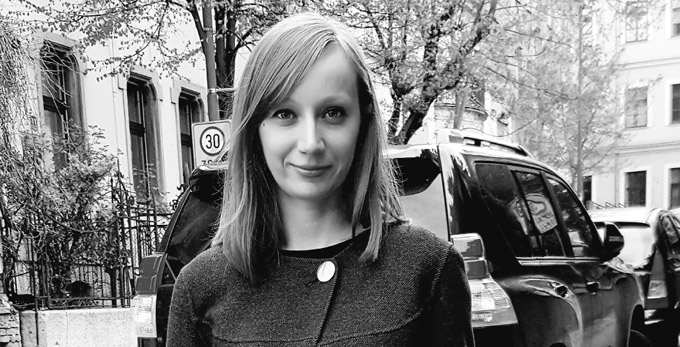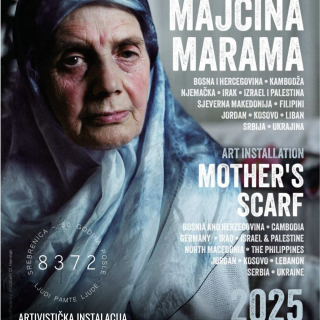You will not get instructions for use for a life in Bosnia and Herzegovina. There is not even a parental advisory label, although it would be useful. A first grader dear to my heart dispiritedly described his first day of school in Sarajevo Canton: ”They played a song for us, we stood up and put a hand on our heart”. What does a child know about the hymn! By the end of his primary education, he will learn about the dissolution of Yugoslavia, will be given a short overview of the declaration of independence of Bosnia and Herzegovina and the Dayton Peace Agreement, and maybe the idea of a new approach to learning history in this canton will come to life. If my first grader were in a Croatian municipality, he would learn about Croatian history and the Homeland War. If, however, he were in Republika Srpska, he would learn about a different recent history. If he were, by chance, attending one of the two schools under one roof, he maybe could exchange his views with someone from the other school under one roof. In any case, by the end of his primary school, he will also hear a lot about the war, Dayton and divisions outside the school, so that such formal education on history will just be a cherry on top of layers of Bosnian and Herzegovinian past.
I asked persons belonging to generations born after 1995 what things they remember from events that occurred in Bosnia and Herzegovina shortly before their birth. I conducted research and was interested in finding out what they remembered, anything, from any source, regarding things they did not witness. The range of their answers was wide: the most frequent memories were about heroism or victims, about the fact that the war was terrible, about children casualties, about the operation Storm, Srđan Aleksić, up to unexpected human gestures (such as helping ‘them’, those persons from the other, enemy side, who needed help). Although they do not have personal records of the past war, let us not lie to ourselves – post-war generations do live with and suffer from war traumas. And they remember. However, who is filtrating such memories and how? What is remembered? And how do memories/the past determine their lives?
Are they even interested in all that past? If not, that is completely understandable. Why would they be? When I was their age (and now I am already old enough to use this term!), this was not a matter of interest, but rather reality. Peace, a mere absence of war, surprised us almost as much as the war. That was a new, unknown situation, new rules, a new reality in which we had to find a balance between what we had been, what we were, what we experienced and what we wanted. And it seems that we wanted many different visions of the future! And while such visions had been constructed and brought to life, we were building (yes, yes, all of us) narratives with which post-war generations grew up. And then we are supposedly surprised by ‘what has become of our youth’! Indeed, what has become of them? They are fed up with the fact that their nose is continuously rubbed in war and afraid of the frequent sabre-rattling, they are amped up to defend themselves and their own, uninterested, aggressive, divided, and those young people from Jajce (‘those young people from Jajce’ as a personification of all young persons in Bosnia and Herzegovina that initiate and carry changes into stale and carefully preserved positions). In case of our young people, we can see and read everything that we have instilled in them since 1995. When I say ‘we’, I truly mean all of us – families, schools, the media, individuals, politicians, musicians, etc., we all contributed (or have failed to do so, which is equally important) to polishing of the mirrors that, try and you will see, reflect all the power or powerlessness of official remembrance policies, personal histories, monuments, warmed up nationalism, educational systems, opposite truths. And among our young people, there is a reflection of what we managed to be ‘preserve’ and ‘immortalise’ in Bosnia and Herzegovina for the past twenty-one years. By preserving and immortalising what needs to be remembered, mostly intentionally rather than unconsciously, one pushes undesired memories into oblivion. And such undesired memories are still there, because it seems to me that it is still too early for oblivion.
Nevertheless, when an institutionalised past takes over reality, what is encouraging is the fact that the mirrors of our memories also contain the part willing to question. We hear, see and feel the presence of critical thinking and alternative voices. Such as an ‘experimental educational curriculum’ or ‘unmarked places of suffering’ or ‘history of learning’ or ‘inappropriate monuments’ or ‘memories 677‘.
In such moments I regret potentially lost opportunities for ensuring more perspectives for young people – we maybe need counter monuments that would reach out to the personal, individual and make it possible to connect to the past on an understandable, youth-related and human level; we need more open, visible and safer spaces for critical thinking and voices about our pasts and histories; we most certainly need support and inclusion at all levels (because this is not just the ‘role’ of the civil society and it cannot and should not act exclusively as the opposition to the state, entities, cantons, municipalities and local communities). But let us say that there is no specifically prescribed ‘right time’ to renew civic awareness, activism and facing the past, and I truly hope that it is not too late for BiH.
This is not a text nor a country with a simple happy-end. There is no happily ever after for Bosnia and Herzegovina or its peoples that we should ‘get’ or that we ‘deserve’ in compliance with some universal principles of justice. Dear post-conflict society of Bosnia and Herzegovina, dear individuals and collectives, we have to build it for ourselves. The key question remains – do we want it? (if possible, without the empty words of wisdom, such as ‘the future of the world is in its youth’, which should be considered before being left in legacy to young people one passes a country with a low tolerance for others, a country that is financially over-indebted, and politically stable and socially frustrated)
Author is PhD candidate of legal sciences, currently working as independent Legal Advisor and Researcher. Her areas of interest are dealing with the past with focus on culture of memory, human rights, constitutional rights. She is the author of published articles, analytical, scientific and research work in these fields.




